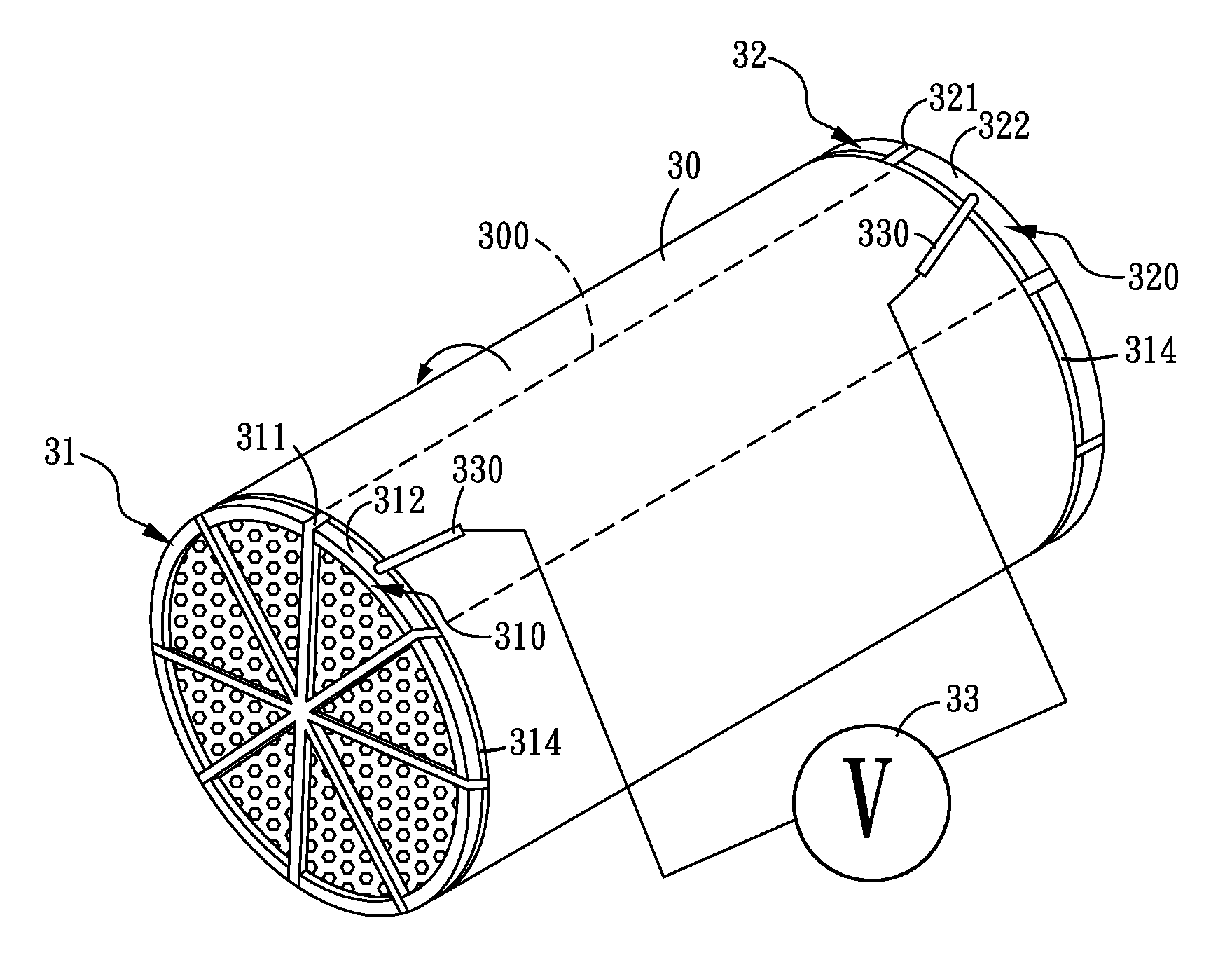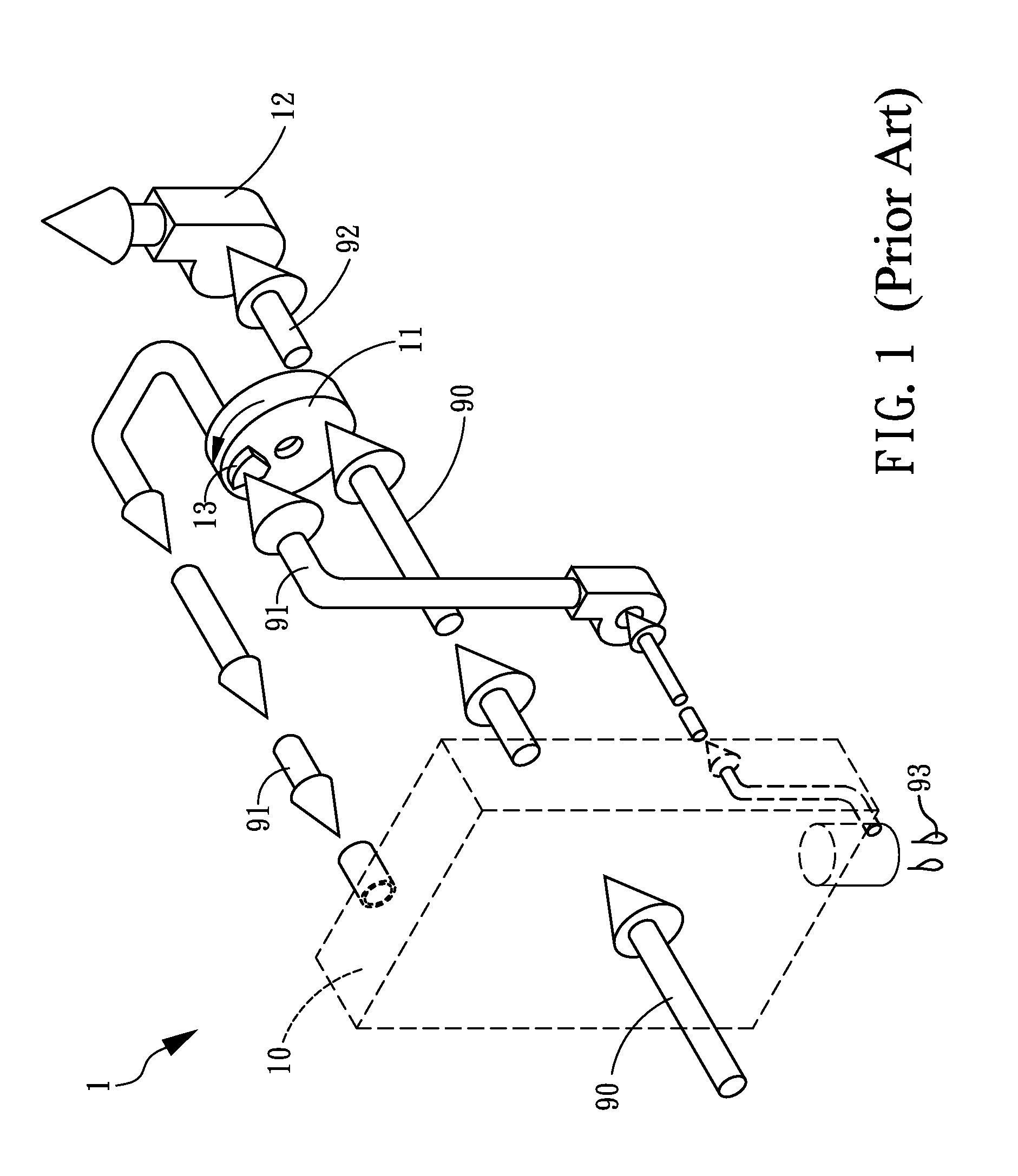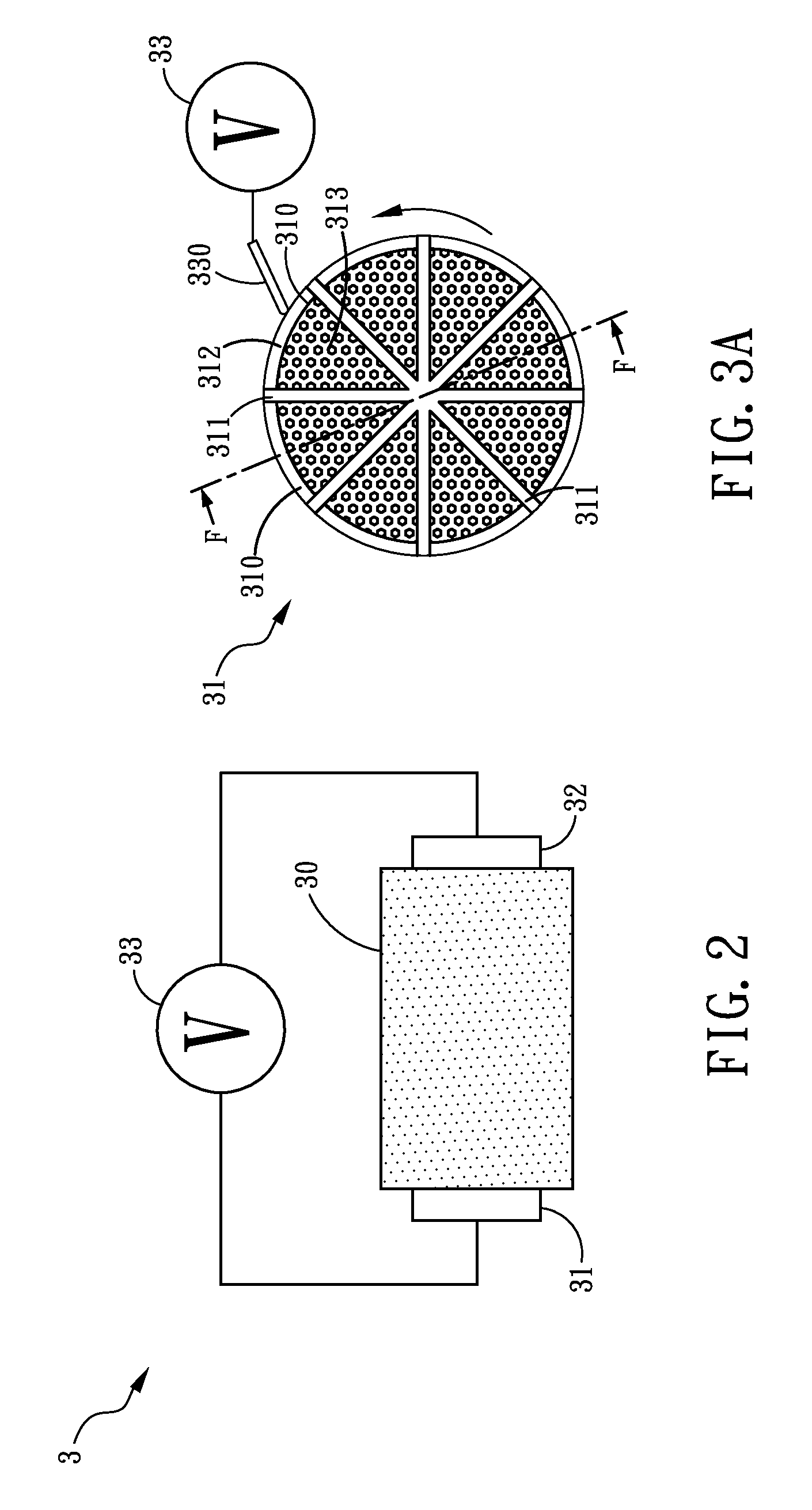Low power consuming desorption apparatus and dehumidifier using the same
a dehumidifier and low power consumption technology, applied in the field of low power consumption dehumidification apparatus and dehumidifier, can solve the problems of high power consumption, high approach cost to achieve dehumidification, and depletion of ozone layer, and achieve the effect of enhancing desorption rate and low power consumption
- Summary
- Abstract
- Description
- Claims
- Application Information
AI Technical Summary
Benefits of technology
Problems solved by technology
Method used
Image
Examples
Embodiment Construction
[0023]The present invention can be exemplified but not limited by the preferred embodiments as described hereinafter.
[0024]Please refer to FIG. 2, which is a schematic diagram of a low power consumption desorption apparatus according to one embodiment of the present invention. In the present embodiment, the desorption apparatus 3 comprises an absorbing material 30, a pair of electrodes 31 and 32 and a voltage supply 33. The absorbing material 30 is capable of absorbing volatile organic substances in the air, exemplified by, but not limited to, nitrogen or water moisture. Generally, the absorbing material is usually used in household dehumidifiers, such as rotary dehumidifier, but not limited thereto. The absorbing material can be made of porous materials such as zeolite, silicone, silica gel, active carbon, carbon nano tubes, metal organic frameworks. Moreover, the absorbing material may also be formed of non-porous materials such as dehydrogenated metal.
[0025]The pair of electrodes...
PUM
 Login to View More
Login to View More Abstract
Description
Claims
Application Information
 Login to View More
Login to View More - R&D
- Intellectual Property
- Life Sciences
- Materials
- Tech Scout
- Unparalleled Data Quality
- Higher Quality Content
- 60% Fewer Hallucinations
Browse by: Latest US Patents, China's latest patents, Technical Efficacy Thesaurus, Application Domain, Technology Topic, Popular Technical Reports.
© 2025 PatSnap. All rights reserved.Legal|Privacy policy|Modern Slavery Act Transparency Statement|Sitemap|About US| Contact US: help@patsnap.com



